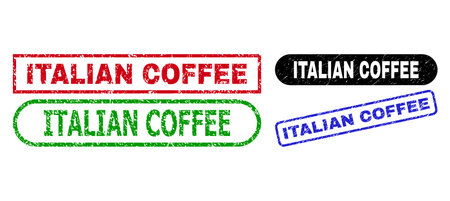1. Understanding the Organic Coffee Label
When youre browsing coffee bags at your favorite grocery store or specialty café, youve probably seen the word “organic” displayed proudly on many labels. But what does “organic” really mean when it comes to coffee in the United States? Let’s break it down in simple terms.
What Does Organic Mean in U.S. Coffee?
In the U.S., for coffee to be labeled as organic, it must meet strict standards set by the United States Department of Agriculture (USDA). This isnt just a marketing buzzword — its a regulated term that ensures certain farming and processing practices are followed.
USDA Organic Certification Requirements
The USDA organic seal means that the coffee:
- Is grown without synthetic pesticides or fertilizers
- Is free from genetically modified organisms (GMOs)
- Uses sustainable farming methods that promote soil and water conservation
- Is processed without artificial additives or preservatives
Certification Process Overview
| Step | Description |
|---|---|
| 1. Application | The farm or producer applies for certification through a USDA-accredited certifying agent. |
| 2. Inspection | An inspector visits the farm to ensure all organic standards are being met. |
| 3. Review | The certifying agent reviews inspection reports and documentation. |
| 4. Certification | If everything checks out, the producer is granted USDA Organic certification. |
Why It Matters: Benefits of Organic Coffee
Choosing organic coffee has multiple benefits, both for you and the planet:
For Consumers:
- No chemical residues: You’re drinking cleaner coffee, free of synthetic pesticides and fertilizers.
- Better for health: Many people believe organic options reduce exposure to potentially harmful substances.
For Farmers and the Environment:
- Sustainable practices: Organic farming helps protect soil health and local ecosystems.
- Biodiversity support: Encourages natural wildlife habitats by avoiding harmful chemicals.
The next time you spot that USDA Organic seal on a bag of beans, you’ll know it stands for much more than trendy packaging — it reflects a commitment to clean farming, environmental sustainability, and quality assurance in every cup.
2. Fair Trade: Coffee with a Conscience
When browsing the coffee aisle, you might notice some bags proudly displaying a “Fair Trade Certified” label. But what does that really mean? In simple terms, Fair Trade is all about making sure coffee farmers get a fair deal—both financially and ethically.
What Is Fair Trade Coffee?
Fair Trade is a global certification system designed to promote better trading conditions for producers in developing countries. For coffee, this means farmers receive a minimum price for their beans, plus an additional premium that supports community development projects like schools, healthcare, and clean water.
Core Principles of Fair Trade
| Principle | What It Means |
|---|---|
| Minimum Price Guarantee | Farmers are paid at least a set minimum price, even if market prices fall. |
| Fair Trade Premium | An extra sum goes directly to farming cooperatives for community projects. |
| No Child or Forced Labor | Strict labor standards ensure ethical practices on farms. |
| Sustainable Farming Practices | Encourages environmentally friendly methods and long-term sustainability. |
How It Supports Farmers and Communities
Unlike conventional trade systems where middlemen take most of the profit, Fair Trade puts more money directly into the hands of the people who grow your coffee. This helps farmers invest in quality production, send their kids to school, and improve their local infrastructure. Its not just about economic support—its about empowering communities to thrive independently.
The Impact on Coffee Pricing and Ethics
You might notice that Fair Trade coffee often costs a bit more than non-certified options. That’s because youre paying for more than just beans—you’re supporting fair wages, ethical treatment, and sustainable agriculture. While it doesn’t guarantee the absolute highest-quality cup (thats where specialty-grade comes in), it does ensure your money supports responsible practices from farm to cup.
Is It Worth Paying More?
If you care about where your coffee comes from and how its produced, Fair Trade is a great way to vote with your dollars. You’re not just buying coffee—you’re backing a movement that values people and the planet as much as profit.

3. Specialty Coffee Explained
When browsing coffee bags in your local grocery store or favorite café, you might come across the term “specialty-grade” or “specialty coffee.” But what does that actually mean in the U.S. coffee world? Let’s break it down in a simple and approachable way.
What is Specialty Coffee?
Specialty coffee refers to the highest quality of coffee available, based on strict grading standards. It’s not just about flavor—it also takes into account how the beans are grown, harvested, processed, and roasted. In America, this classification is largely guided by the Specialty Coffee Association (SCA), a respected organization that sets the benchmark for what qualifies as specialty-grade.
The Role of the Specialty Coffee Association (SCA)
The SCA has developed an official system to evaluate coffee quality. Beans are graded on a 100-point scale after being carefully inspected and taste-tested by certified professionals called Q Graders. To be labeled as “specialty-grade,” green (unroasted) coffee must score 80 points or higher.
Coffee Quality Scoring System
| Score Range | Coffee Grade | Description |
|---|---|---|
| 90–100 | Outstanding Specialty | Amazing flavor complexity and balance; rare and often expensive. |
| 85–89.99 | Excellent Specialty | Smooth, clean flavors with unique characteristics. |
| 80–84.99 | Very Good Specialty | Tasteful and well-balanced; widely available in specialty shops. |
| < 80 | Not Specialty Grade | Might have defects or lack flavor clarity; usually found in commodity coffee blends. |
The Importance of Bean Quality and Handling
A specialty-grade label means more than just good taste—it reflects careful attention at every stage:
- Farm Level: Grown at high altitudes with ideal climate conditions.
- Harvesting: Hand-picked to ensure only ripe cherries are selected.
- Processing: Washed, natural, or honey processing done under controlled conditions to preserve flavor integrity.
- Cupping: Evaluated by professionals for aroma, acidity, body, sweetness, and aftertaste.
Sourcing Specialty Coffee in the U.S.
If youre shopping for specialty coffee in America, look for terms like “Single Origin,” “Direct Trade,” or “Micro-Lot” on packaging—these often go hand-in-hand with specialty-grade beans. Many roasters will also share cupping scores or details from the SCA evaluation process to back up their claims.
A Quick Tip:
If a bag doesn’t list a score but claims to be “specialty,” check if they mention the SCA or provide farm-level sourcing info—that’s usually a good sign!
This level of transparency helps ensure youre getting a cup thats not only delicious but also ethically sourced and crafted with care.
4. How These Labels Affect Your Coffee Experience
When youre staring at rows of coffee bags in your local grocery store or browsing online, labels like “Organic,” “Fair Trade,” and “Specialty-Grade” can feel overwhelming. But understanding what they mean can actually help you choose a better cup of coffee—not just for your taste buds, but also for your wallet and the planet.
Flavor and Freshness
These certifications often go hand-in-hand with better quality control during farming, harvesting, and roasting. That means a more flavorful and fresher cup of coffee for you. Heres how each label typically affects the taste:
| Label | Flavor Impact | Freshness |
|---|---|---|
| Organic | Smoother taste with fewer chemicals; natural flavors shine through | Often roasted in smaller batches, meaning it reaches you sooner |
| Fair Trade | Varies by origin, but generally ensures consistent quality due to farming standards | Producers are incentivized to keep beans fresh to meet standards |
| Specialty-Grade | Complex flavors, high clarity, and zero defects—top-tier taste experience | Usually roasted to order or in small batches to maintain peak freshness |
Price Point: Why It Costs More (and Why It Might Be Worth It)
You might notice that certified coffee tends to be more expensive. Thats because these labels usually mean extra effort at every step—from how the beans are grown to how theyre processed and shipped. Youre not just paying for the name; youre investing in quality and ethics.
What You’re Paying For:
- Organic: No synthetic pesticides or fertilizers; higher cost of natural farming methods
- Fair Trade: Guaranteed minimum wages for farmers; community development funds
- Specialty-Grade: Rigorous grading, selective harvesting, expert roasting techniques
Sustainability Matters
If you care about the environment or want your purchase to support ethical practices, these labels carry weight beyond flavor. Organic farming helps preserve soil health and reduces chemical runoff. Fair Trade ensures farmers are treated fairly and can invest back into their communities. Specialty-grade often involves direct trade relationships that promote transparency and sustainability throughout the supply chain.
The Bottom Line for Everyday Coffee Drinkers
You don’t have to be a coffee snob to appreciate what these labels bring to the table. Whether youre brewing with a French press at home or grabbing a cold brew on the go, choosing certified beans can elevate your daily routine—with better taste, more transparency, and less guilt.
5. Tips for Making Informed Choices as a U.S. Coffee Consumer
Understanding coffee labels can feel overwhelming, especially with so many certifications and claims. But once you know what to look for, making better coffee choices becomes much easier. Here are some practical tips to help you choose beans that align with your values and support ethical and sustainable practices in the U.S. coffee industry.
Read Beyond the Buzzwords
Labels like “organic” or “fair trade” can be helpful, but they don’t always tell the whole story. Look for specific details about where the coffee was grown, how it was processed, and who roasted it. Transparency is key — trustworthy brands often share more than just certifications.
Understand Common Coffee Certifications
Here’s a quick breakdown of popular labels and what they typically mean:
| Label | What It Means | Why It Matters |
|---|---|---|
| Organic | Coffee grown without synthetic fertilizers or pesticides | Better for the environment and potentially healthier for farmers and consumers |
| Fair Trade | Ensures farmers receive minimum prices and community support | Promotes fair labor practices and economic stability in farming communities |
| Specialty Grade | Coffee scored 80+ points by certified Q Graders | Indicates high-quality beans with unique flavor profiles |
| Direct Trade | Bought directly from producers without middlemen | Often means higher pay for farmers and more transparency for consumers |
Support Local U.S. Roasters
Many small-batch roasters across the U.S. are committed to ethical sourcing, environmental sustainability, and exceptional quality. Buying from them not only supports local businesses but also gives you access to fresher coffee and more traceable supply chains.
How to Find Ethical U.S. Roasters:
- Check if the roaster shares sourcing stories on their website or packaging.
- Look for third-party certifications or direct trade relationships.
- Read reviews or follow social media accounts to learn more about their values.
- Ask questions — many roasters are happy to talk about their sourcing practices.
Match Your Purchase With Your Values
If sustainability is important to you, prioritize organic or shade-grown coffees. If social justice matters most, seek out fair trade or direct trade options. By aligning your buying habits with your beliefs, your morning cup can make a difference beyond just giving you a caffeine boost.
Your Daily Brew Can Be a Force for Good
The next time youre browsing the coffee aisle or shopping online, take a moment to read the label closely. Choosing ethically sourced, specialty-grade beans from transparent U.S. roasters doesnt just taste better — it feels better too.

